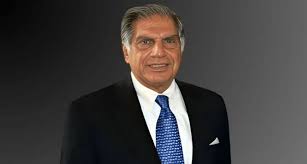
Ratan Tata, the man behind the global expansion and success of the Tata Group, officially retired in 2012. Yet, his influence continues to loom large over the Tata conglomerate. His impeccable leadership, ethical business practices, and visionary outlook have made him one of the most admired business leaders in India and around the world. As Ratan Tata transitions into a more advisory role and remains an influential figure, the question of who will succeed him has been a subject of intrigue and speculation.
A Challenging Legacy to Uphold
Ratan Tata left behind a legacy of innovation, philanthropy, and expansion. His leadership saw the Tata Group become a global giant, with successful acquisitions like Jaguar Land Rover, Corus Steel, and Tetley Tea. Moreover, Tata’s role in maintaining the ethical standards of the company, along with his focus on social responsibility through the Tata Trusts, sets a high bar for his successor.
Choosing the next leader for Tata Sons is not just about continuing the business; it’s about preserving and advancing the values that the Tata Group stands for. The successor would need to navigate this balance of driving profitability while staying true to the group’s deeply ingrained principles of ethics and philanthropy.
Natarajan Chandrasekaran: Tata Sons’ Current Chairman
In 2017, Natarajan Chandrasekaran, fondly known as “Chandra,” was appointed as the chairman of Tata Sons, the holding company of the Tata Group. A longtime Tata employee, Chandrasekaran was previously the CEO of Tata Consultancy Services (TCS), the group’s most valuable and profitable company.
Chandrasekaran’s rise to the top came after a brief but tumultuous leadership period under Cyrus Mistry, who was controversially ousted in 2016. Chandra’s appointment was welcomed as he represented continuity and stability. Under his leadership, the Tata Group has witnessed growth and a return to form in key sectors. He has focused on streamlining operations, reducing debt, and leading the group’s businesses through challenges posed by the global pandemic.
However, while Chandra’s leadership has brought positive results, the question still remains: Is there a long-term succession plan in place for the Tata Group?
Tata Trusts and the Role of Noel Tata
One prominent name that has often surfaced in succession discussions is Noel Tata, half-brother to Ratan Tata. Noel has had a long association with the Tata Group and currently serves as the chairman of Tata International and Tata Investment Corporation. He also holds the vice-chairmanship of Titan, one of the group’s most successful companies.
Noel Tata is seen as a measured, low-profile leader who shares Ratan Tata’s ethical grounding and deep commitment to the group’s principles. His experience across various Tata companies and his strategic leadership within Tata Trusts, which controls around 66% of Tata Sons, makes him a contender to eventually take on a more significant leadership role. However, he has remained largely behind the scenes and has not been as publicly visible as some of the other candidates.
Internal Candidates and Future Leaders
There is also speculation that the Tata Group could follow a corporate model, allowing other leaders to emerge from within the organization. Tata has long been a company that values internal talent, and the next leader may come from within the various businesses under its umbrella.
Executives like Praveer Sinha, CEO of Tata Power, and Guenter Butschek, the former CEO of Tata Motors, have been mentioned as possible future leaders. Additionally, Tata Steel’s CEO, T.V. Narendran, who successfully led the company through challenging economic times, is also seen as a strong contender for larger roles within the group.
Could Tata Look Outside the Family?
While Tata Group has always been associated with its founding family, it has shown that it is open to professional leaders from outside the family circle. Ratan Tata’s own succession has seen two non-family members, first Cyrus Mistry and now Natarajan Chandrasekaran, take the reins of Tata Sons.
This openness to external leadership could suggest that the company might continue to look outside the Tata family for a suitable successor, potentially from other large Indian conglomerates or even international businesses.
The Values-Based Succession Plan
Whoever takes over the leadership at Tata Group will have the immense responsibility of upholding its legacy. Tata Sons isn’t just another business conglomerate; it is a symbol of trust, ethics, and community development in India. Over 66% of the profits from Tata Sons are directed into philanthropic activities, making it one of the most unique business models in the world.
Ratan Tata’s focus has always been on the good of the community and not just profits, a philosophy rooted in the company’s very foundation. His successor will need to embody these principles while leading the Tata Group into the future.
Conclusion: The Future of Tata Group Leadership
The question of who will succeed Ratan Tata has no clear answer yet, but what is certain is that the successor will need to meet very high expectations. Whether it is Noel Tata, Natarajan Chandrasekaran, or a rising leader from within the Tata fold, the future leader will have to carefully balance profitability with the social consciousness that defines the Tata brand.
Ratan Tata’s legacy is more than just global expansions or landmark acquisitions — it is the values of trust, integrity, and care for the community. Whoever follows in his footsteps will have to protect and enhance these values while navigating the changing global business environment.



